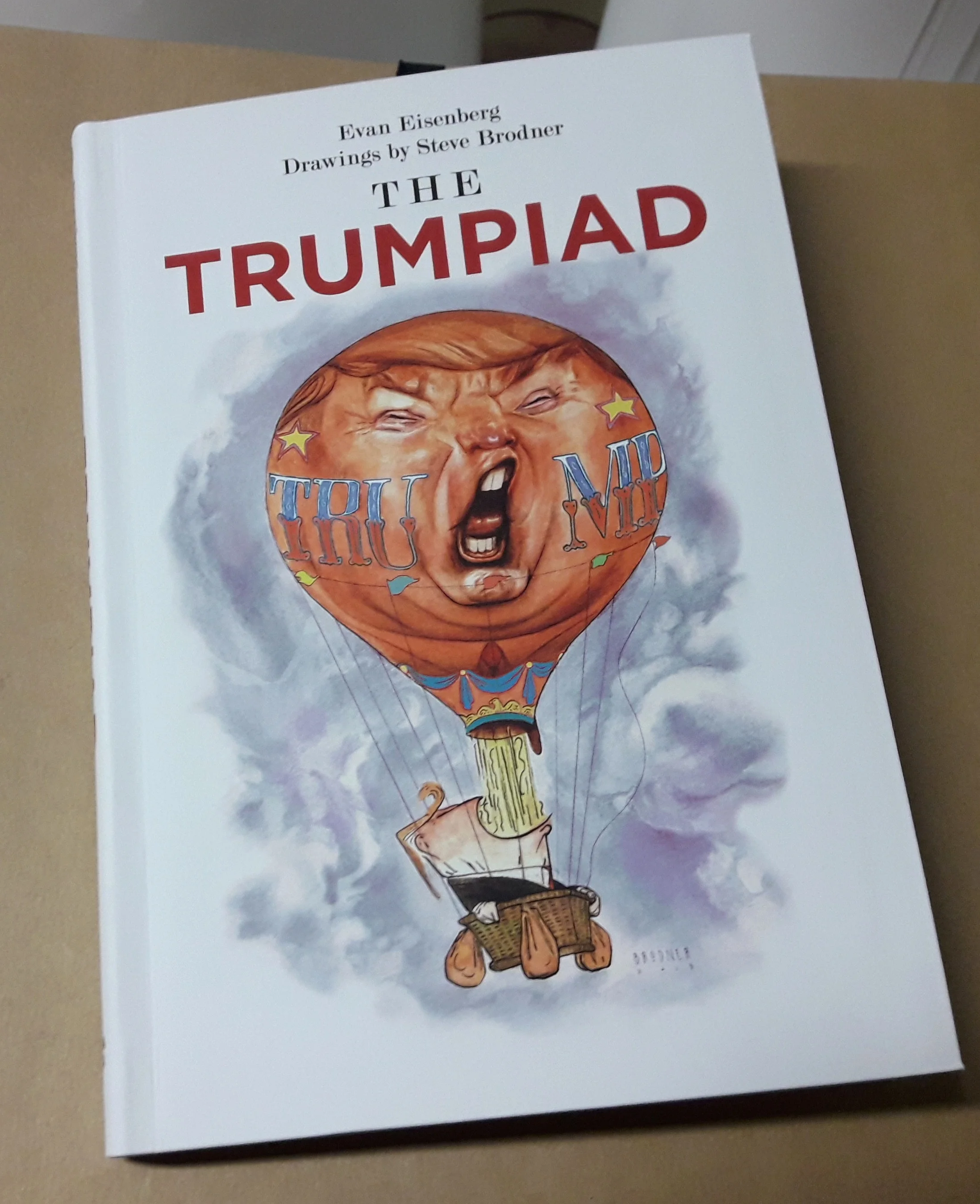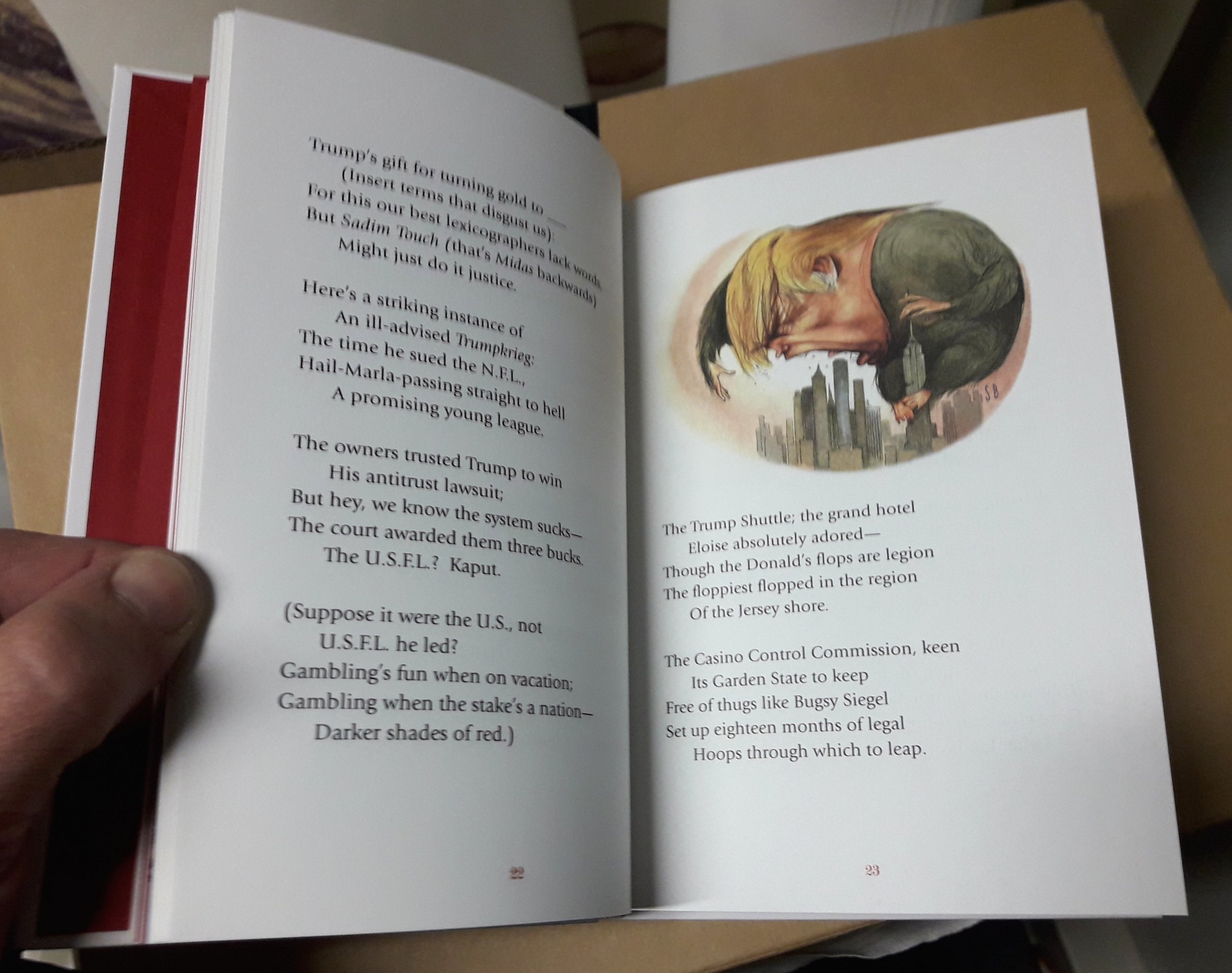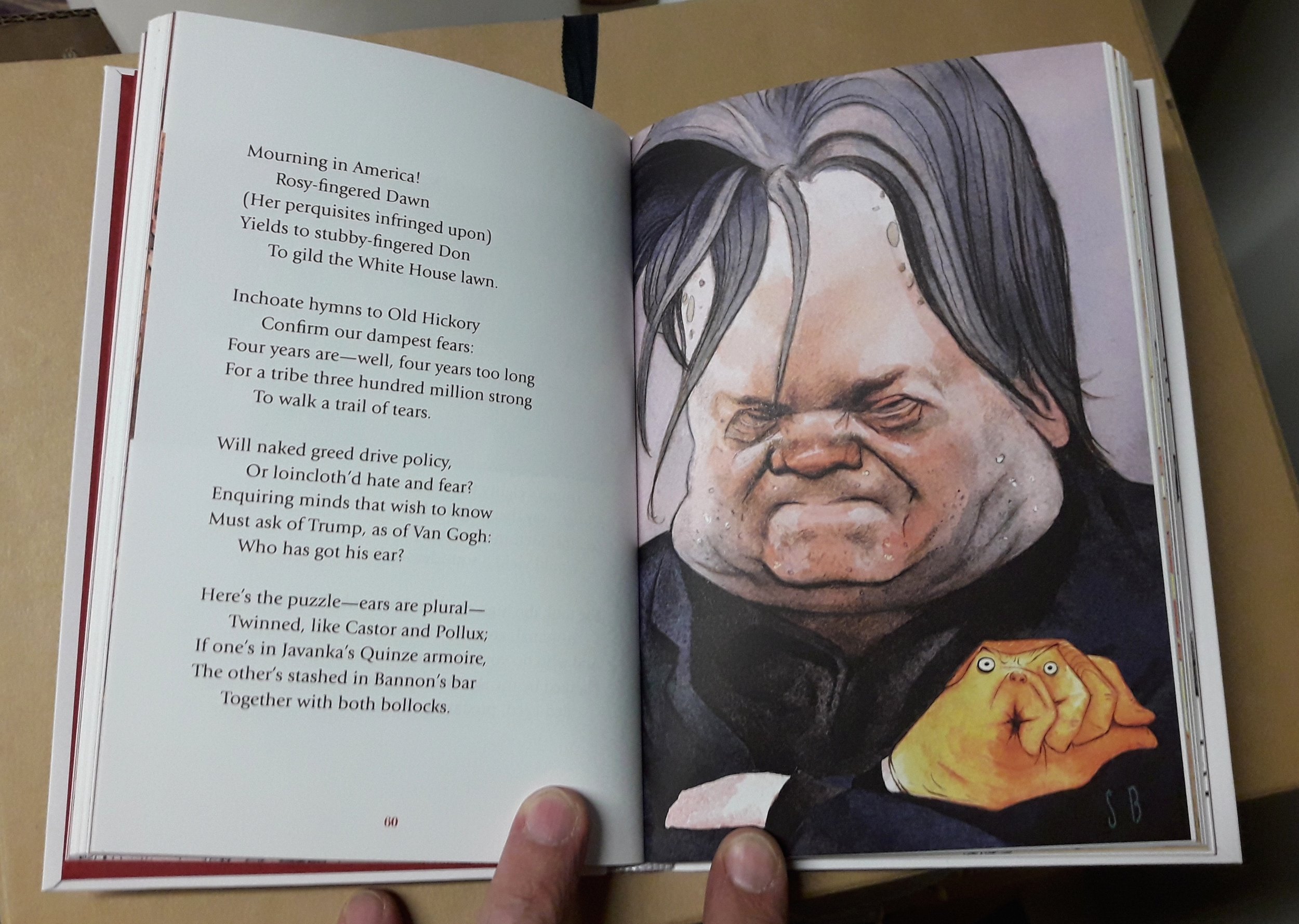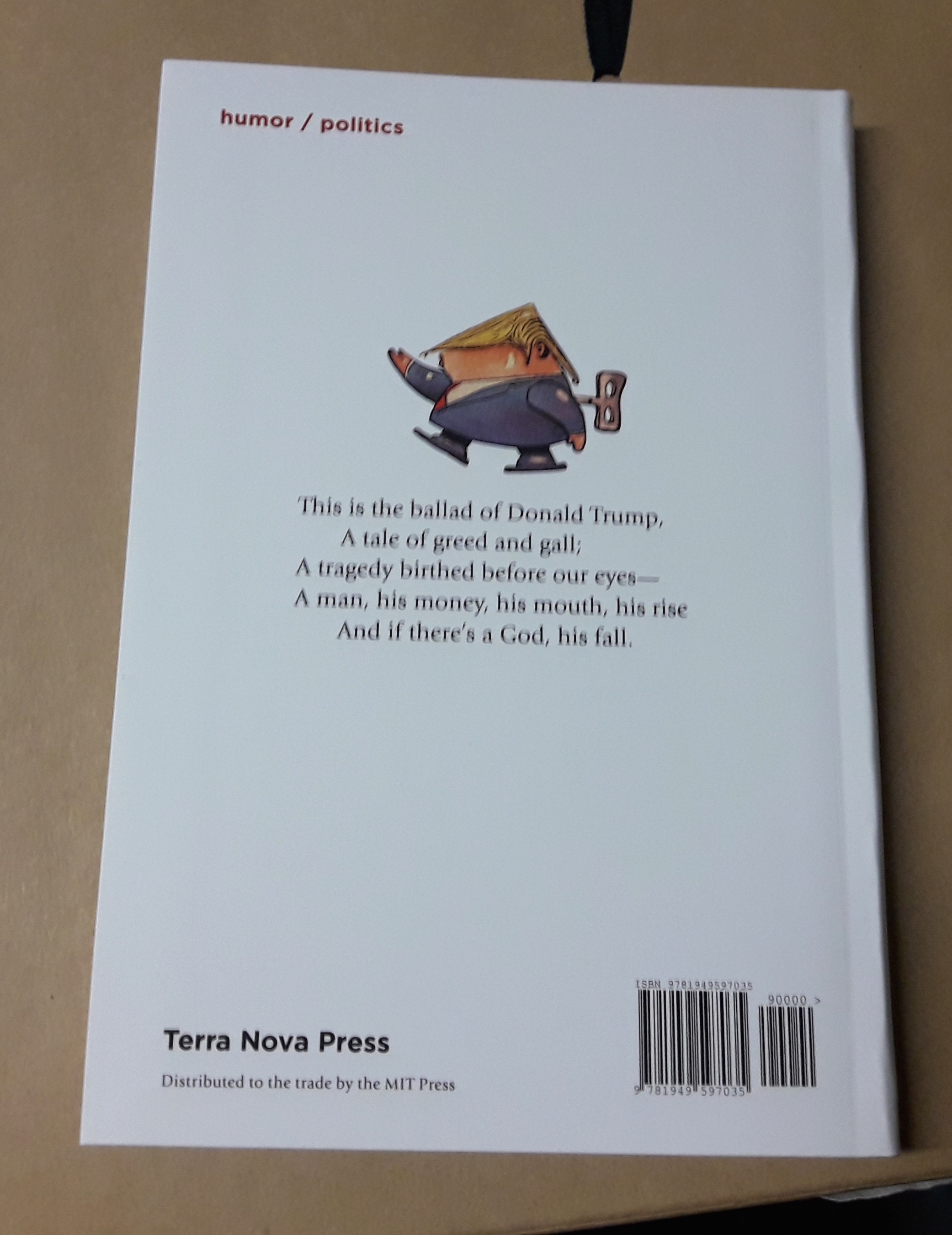NEW FROM TERRA NOVA / THE MIT PRESS
“Delectable... razor-sharp.” —Jed Perl
“Witty and wonderful.” —Edward Sorel
“Sophisticated and encyclopedic.” —Paul Berman, Tablet
“[An] uproarious comedy.” —Chronogram
“A must-read (and laugh-till-you-weep) for our times.” —Sharon Dolin
“[Eisenberg’s] stanzas—torrential, merciless, coruscating, and often irreproachably
scabrous—bristle with Hudibrastic brilliance..”
—Matthew Gurewitsch, beyondcriticism.com
Few politicians in history have deserved lampooning as richly as Donald Trump. And
few have had their just deserts served up as deliciously as in the Trumpiad, “a true epic
about a mock President” (Stuart Klawans).
Before TV came along, the role of late-night comedy—to mash the pie of truth in the face
of power—was played by satire in verse, often abetted by the artist’s pen. In their
caustic, uproarious Trumpiad, Evan Eisenberg and Steve Brodner reinvent this grand
tradition for our demented times. Inspired by Swift, Byron, and Dorothy Parker as much
as by John Oliver and Stephen Colbert, Eisenberg traces our hero from the murk of his
ancestry to his latest high crimes and misadventures. Brodner matches the poet punch
for punch, in the spirit of such great political artists as Hogarth, Goya, and Daumier.
Now a small (Trump-clutchable) but beautiful book, the Trumpiad extends, in its
chronicle of the Maladministration, far beyond anything posted online, reaching
up to the very doorstep of the midterm elections. Nevertheless, Book Two has now been
disabled on this site to discourage the human (and particularly Trumpian) impulse to get
something for nothing. If you want to taste the wares, Book One is still up, though
illustrated far less lavishly than in the printed book.
Evan Eisenberg's book The Ecology of Eden (Knopf, Vintage)—an inquiry into
humankind's role in nature, real and imagined—has been hailed as “a masterwork”
(Toronto Globe and Mail), “a prose epic [of] dazzling wit and impressive learning"
(Washington Post), and "a tour de force of magnificent visionary sweep" (Sunday
Times, London). His first book, The Recording Angel, a pathbreaking study of the
cultural impact of recorded music, has been translated into French, German, and
Italian. Reissued in an expanded edition by Yale University Press, it has been
selected as one of the "50 greatest music books ever" by the Observer (U.K.) and as one of
the “100 greatest music books of all time” by Billboard, and is featured in Time Out 1000
Books to Change Your Life. Eisenberg's writing on nature, culture and technology has
appeared in The Atlantic, The New Republic The Nation, the New York Times, Natural History,
Discover, New York, the Wall Street Journal, and other periodicals. His humor pieces have
been featured in The New Yorker, The Atlantic, Time, Esquire, Slate, Salon, The Independent
(U.K.), L.A. Weekly, the New York Observer, the Chronicle of Higher Education, and the op-ed
section of the New York Times. A screenplay for a feature comedy, sold a few years ago to
Warner Brothers, is now in Turnaround, the circle just below Limbo in Dante's hell. You
can reach Evan at eeisenberg (at) verizon.net.
One of the most respected political illustrators and caricaturists alive, Steve Brodner
is accepted in the fields of journalism and the graphic arts as a master of the editorial
idiom. Spanning almost four decades, his work has appeared in numerous major
publications, including The New Yorker, Rolling Stone, the New York Times,
Harper's, The Atlantic, Esquire, Vanity Fair, Time, Newsweek, Playboy, Slate, and
Mother Jones. As an art journalist he has covered eight national political
conventions for Esquire and such major national events as the Million Man March
for The New Yorker. Among his many awards are the Hamilton King Award and
the Aronson Award for Social Justice Journalism. His books include Freedom Fries
and (with Stanley Bing) Bingsop's Fables. Brodners' work, first widely seen
exposing and attacking Reagan-era scandals, is credited with spearheading the
1980s revival of pointed and entertaining graphic commentary in the U.S. Lewis
Lapham, longtime editor of Harper's, once called Brodner "a born arsonist,"
comparing his "incendiary spirit" to the likes of Mark Twain, Mencken, Goya, and
Thomas Nast. The legendary political artist Edward Sorel has called him "the best
caricaturist around."




